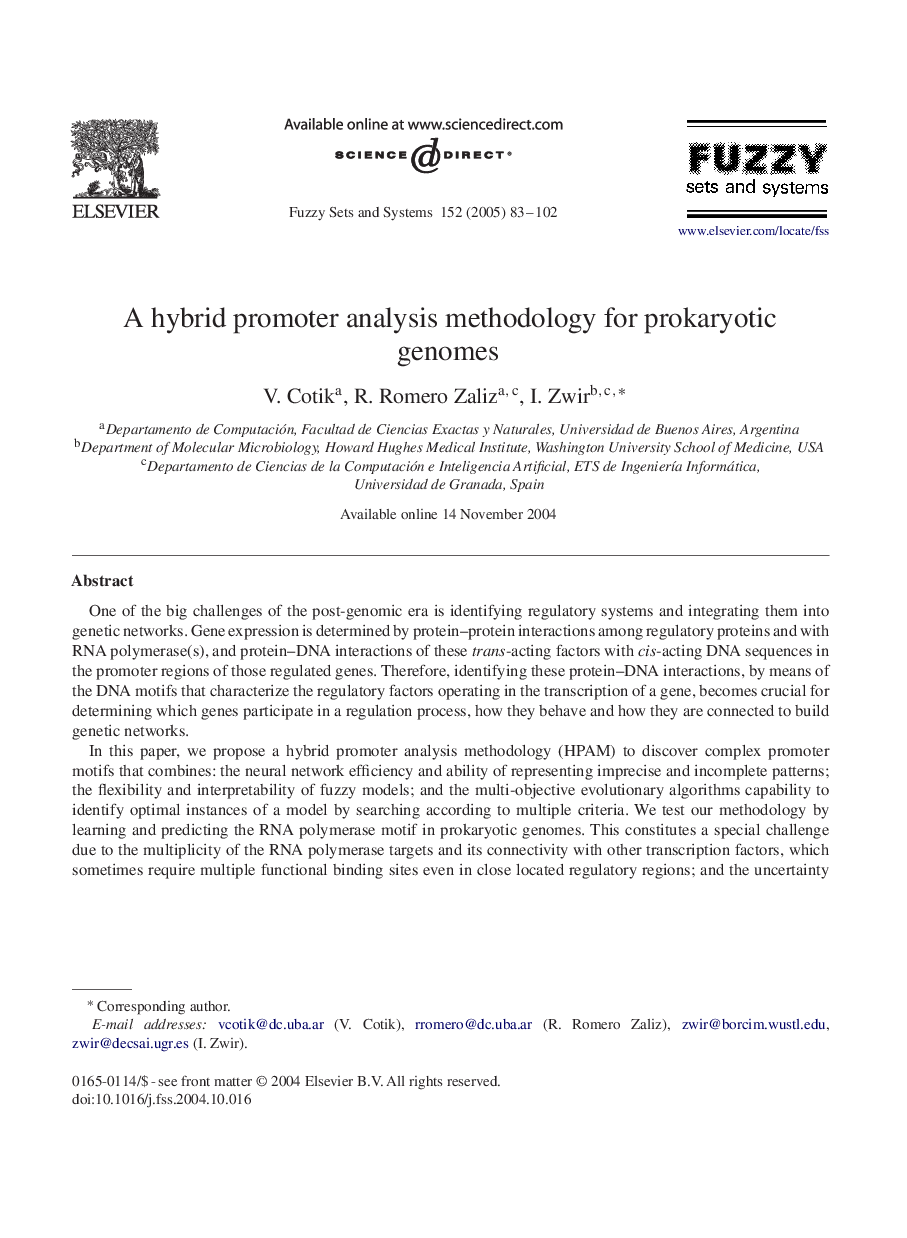| Article ID | Journal | Published Year | Pages | File Type |
|---|---|---|---|---|
| 10323737 | Fuzzy Sets and Systems | 2005 | 20 Pages |
Abstract
In this paper, we propose a hybrid promoter analysis methodology (HPAM) to discover complex promoter motifs that combines: the neural network efficiency and ability of representing imprecise and incomplete patterns; the flexibility and interpretability of fuzzy models; and the multi-objective evolutionary algorithms capability to identify optimal instances of a model by searching according to multiple criteria. We test our methodology by learning and predicting the RNA polymerase motif in prokaryotic genomes. This constitutes a special challenge due to the multiplicity of the RNA polymerase targets and its connectivity with other transcription factors, which sometimes require multiple functional binding sites even in close located regulatory regions; and the uncertainty of its motif, which allows sites with low specificity (i.e., differing from the best alignment or consensus) to still be functional. HPAM is available for public use in http://soar-tools.wustl.edu.
Keywords
Related Topics
Physical Sciences and Engineering
Computer Science
Artificial Intelligence
Authors
V. Cotik, R. Romero Zaliz, I. Zwir,
